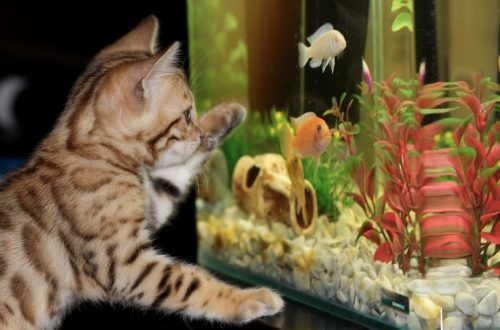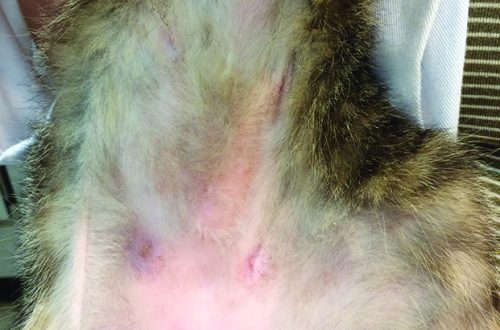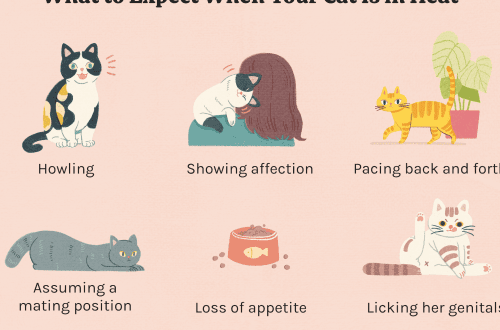
Cat eats litter: what to do
Many cat owners are faced with problems that they never even thought about before. One of them is that the cat eats litter for the toilet. This behavior of a tailed friend is discouraging, but any cat oddities have their own reasons.
To understand how to wean a pet from the addiction of chewing filler, you first need to find out the reason for this behavior.
Veterinarians and cat behaviorists identify 4 main reasons:
- instincts. Cats are carnivores by nature and need to sharpen their claws and teeth. And if wild felines have trees and other objects into which they can launch their powerful weapons, then domestic purrs do not have such an opportunity. They would be happy to bite slippers and sharpen their claws on the sofa, but the owners do not allow it. What’s left? That’s right – a filler that chews pretty well.
- Lack of vitamins. When a pet lacks vitamins from food, he begins to look for them outside his bowl and often finds them in the tray. For example, with a lack of calcium, the cat will draw it from the calcium-containing component of the filler.
- Psychological problems. Similar to a person who, due to stress, can bite the tip of a pencil or bite his nails. The cat will also want to occupy its teeth due to the stress experienced. Going to the toilet for a cat is not just a physiologically necessary action. The pet perceives the toilet as a zone of calm and safety. Therefore, a four-legged filler can “play around” to muffle negative emotions. To prevent this from happening, you need to devote more time to your pet.
- Age. Very often chewing filler small silly kittens who are just beginning to explore the world. In addition, the granules are quite passable for toys that can be fun to roll on the floor, and then gobble up with a sense of accomplishment. Of course, such actions must be stopped and the baby should be provided with safe toys. But if an adult cat that is over a year old eats filler, this is a good reason to make an appointment with a doctor.

If you can’t figure out the cause on your own, a veterinarian will help with this. However, whatever the reason, it is important to pay attention to the strange food addictions of the tailed ward in time and take action as soon as possible, because the consequences can be sad.
If the cat has tried the filler a little, this is unlikely to lead to negative consequences. But if the pet continues to eat it, this can lead to blockage of the gastrointestinal tract.
Clumping filler under the influence of hydrochloric acid of the stomach forms a large lump. This threatens with emergency veterinary intervention and even surgery. Without timely medical attention, the pet may die.
Important: clumped filler in the intestines is not visible on x-rays. Therefore, if there is nothing suspicious in the pictures, this does not mean that the cat does not need help.
Silica gel filler is no less dangerous – it sticks to mucous membranes, absorbs moisture from them, injures the walls of the stomach and intestines, forming real ulcers.
If your cat has eaten litter and his behavior has changed (the pet looks lethargic, sleepy or aggressive, huddled in a corner, refuses to eat, breathes often), you do not need to self-medicate. At home, you are unlikely to help your pet.
You can not provoke vomiting and diarrhea, so you can aggravate the situation. The only thing you can do is take the cat to the clinic as soon as possible.

As we said above – if the cat has already eaten filler, then only a specialist will help him. Your task is to notice something wrong in time and deliver the four-legged patient to the veterinarian.
But if you see that the cat is just beginning to be interested in the filler, do the following.
Track what kind of filler your pet likes. If he is interested in wood, but is indifferent to silica gel, get silica gel. But don’t stop watching, because tastes may change.
Reconsider the cat’s diet, it should receive from food all the necessary substances for the body. On the recommendation of a veterinarian, you can buy multivitamins at the pet store.
If your cat eats litter to sharpen her teeth, get her some tasty treats or toys to keep her teeth busy.
The grid on the tray is the most logical and optimal option. She will not allow the cat not only to eat up the filler, but also to scatter it all over the floor.
Pay more attention to the cat, play with it, pet it more often. Perhaps he lacks your affection and attention.
Remove litter from your pet’s mouth if they are caught committing a “crime”. Just do not yell at him and do not hit him, this will make the cat even more frightened.
Do your best to wean your cat from eating litter before it becomes a habit and ends badly. Take care of your pets and seek medical help in time!





